
Experience...
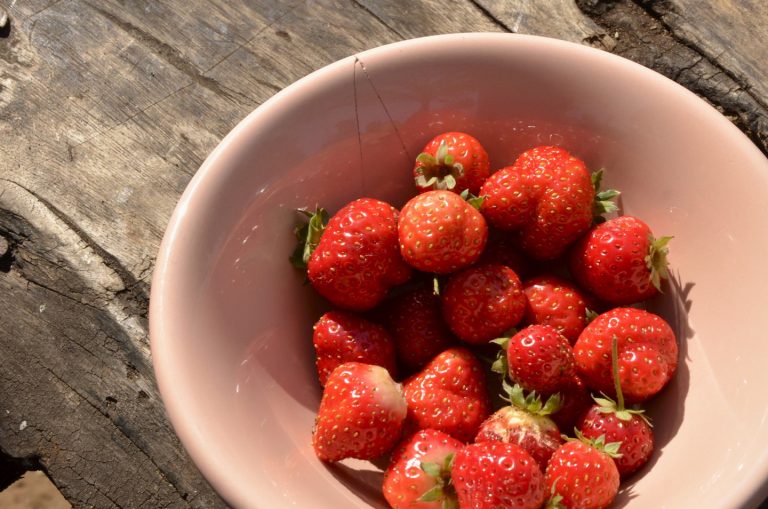
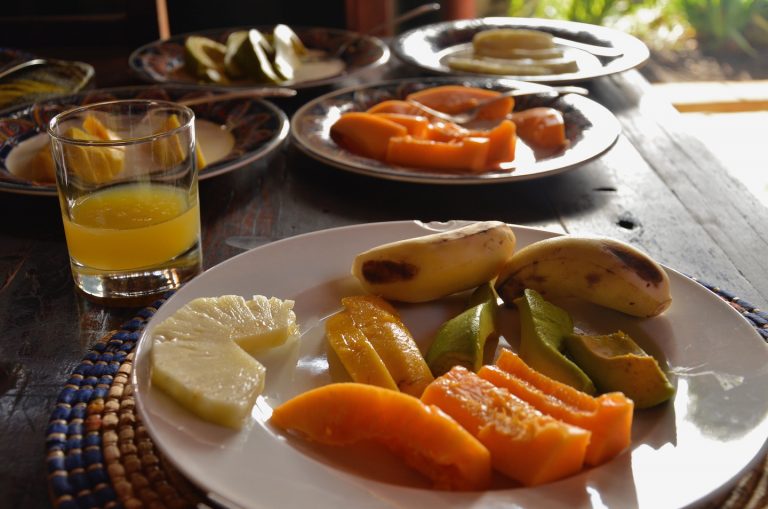
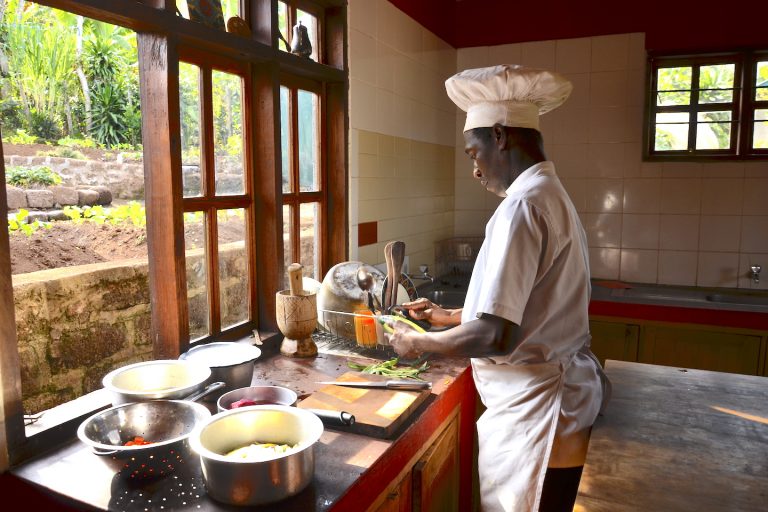
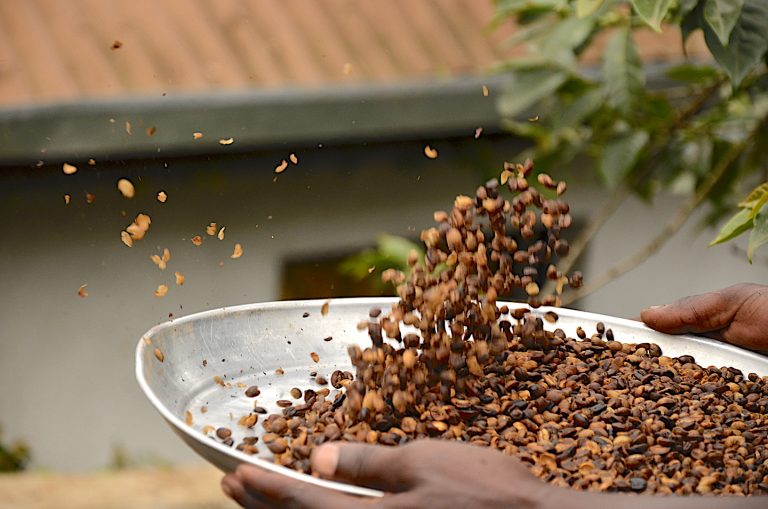
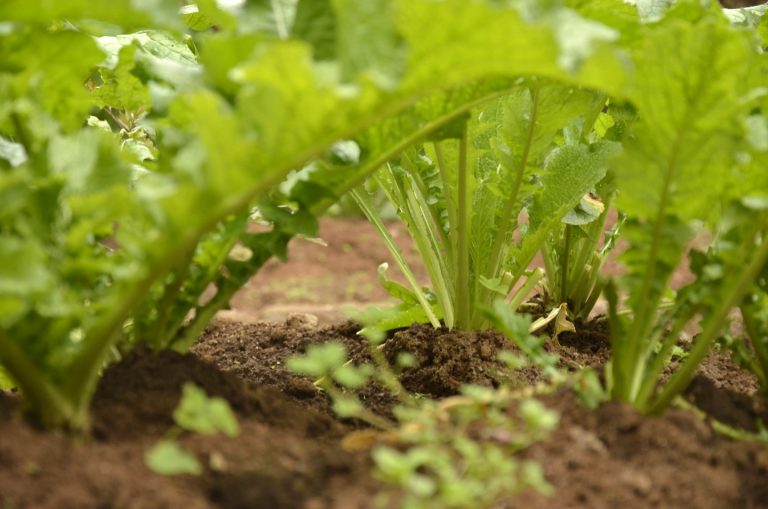
Farm to Table
Meal preparation is overseen by the head chef who selects daily fresh fruits and vegetables from the farm and our sister-farm, Kijani Farm also owned by the Mtuy’s. Meat and fish come from the local market. Meals are taken either in the indoor dining or the outside dining area where on cool evenings canvas walls are unfurled and a fire blazes in the fireplace. Fresh-brewed coffee from the farm and teas are available all day long.
The Tanzania mountain climate allows for a year-round growing season. When combined with the rich volcanic soil and irrigation directly from the mountain streams this creates an ideal environment for farming. Simon has learned traditional farming practices passed down from generations and incorporated permaculture that he’s acquired over the years.
The completely organic Mbahe Farm produces coffee (processed and roasted on-site), honey, kweme (oyster nuts) and a wide range of fruits and vegetables (to list just a few of Simon’s ever-expanding bounty: bananas, strawberries, tamarillos, papaya, avocado, kale, Swiss chard, spinach, rhubarb, lettuce, leeks, onions, taro root and sweet potatoes). From this and combined with purchases in the community, the Mbahe Farm chef and his staff produce an inspired mixture of international and local cuisine while incorporating indigenous ingredients. Mbahe Farm can accommodate any dietary restrictions.
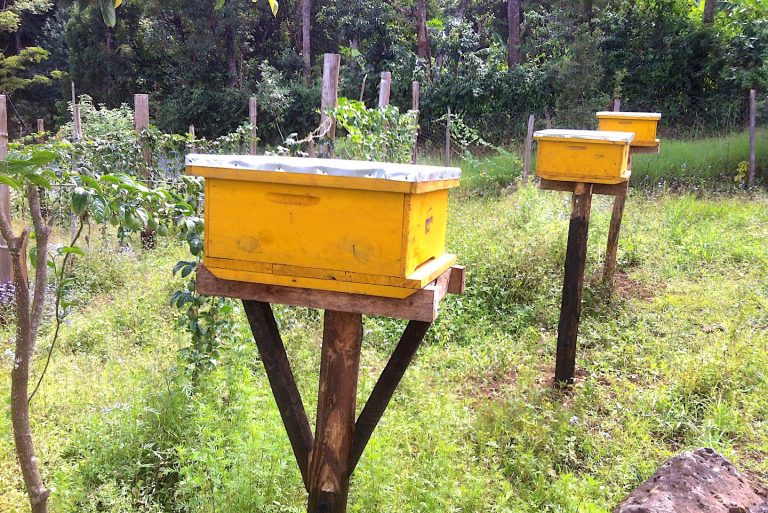
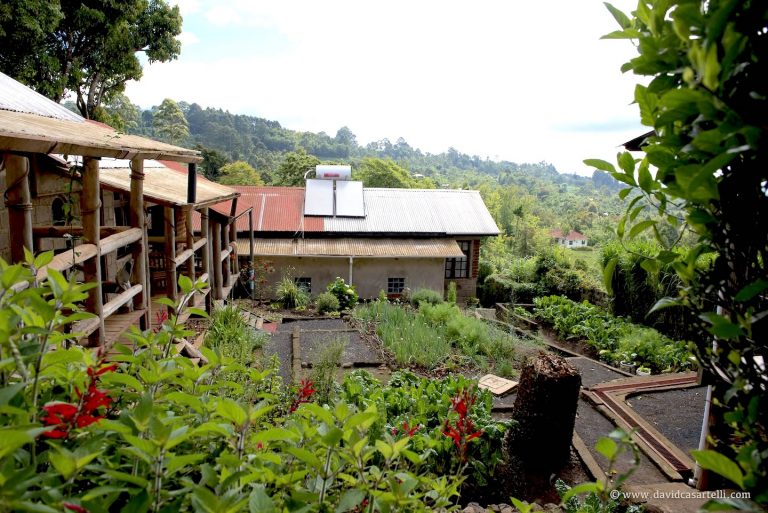
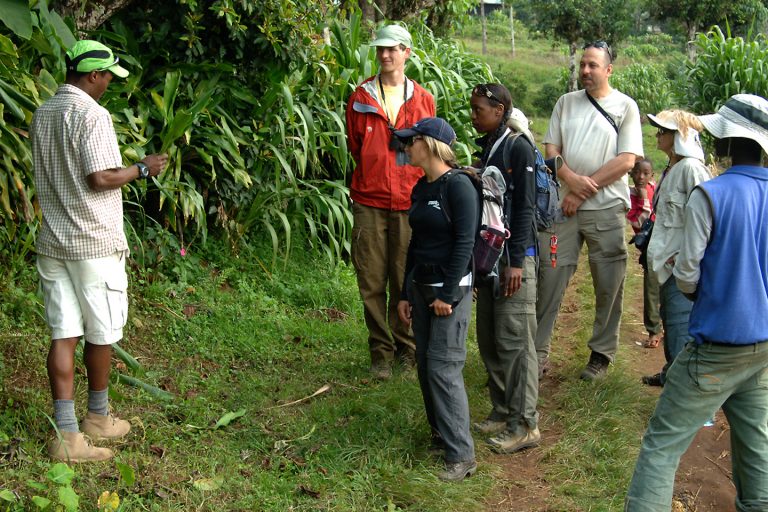
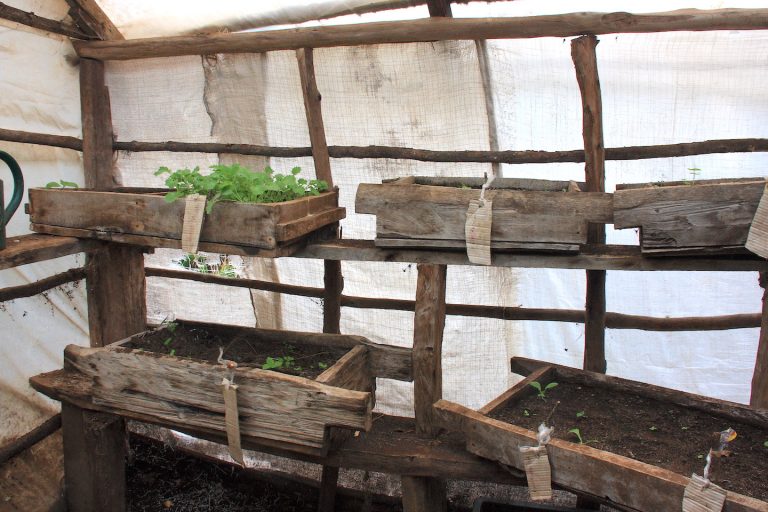
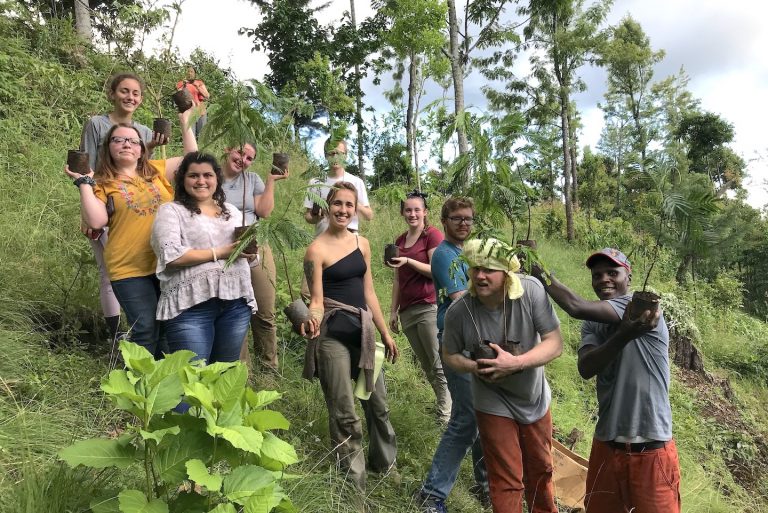
Sustainability and Social Responsibility
Bill Mollison, who first coined the term permaculture in 1978 defined it as:
“the conscious design and maintenance of agriculturally productive systems which have the diversity, stability, and resilience of natural ecosystems. It is the harmonious integration of the landscape with people providing their food, energy, shelter and other material and non-material needs in a sustainable way.”
Concerned about environmental sustainability and the future of his village, owner Simon Mtuy designed, built, and operates the farm and cottages using principles of permaculture. Where possible recycled building materials are used (recycled electric poles; logs from river driftwood; upcycled windows and wood from old homes and used glass bottles). The farm utilizes solar water heaters for showers. To reduce plastic waste, reusable sanitized aluminium water bottles are available in the rooms to refill with water from a solar filtration system. Simon strives to preserve biodiversity with community tree planting and installation of village bee hives. Priority is given to local materials and local economy for products, services, and employment at the cottages. Over the years through various collaborations, Simon has supported local projects including building bridges, infrastructure at the primary school and a dispensary at the church.
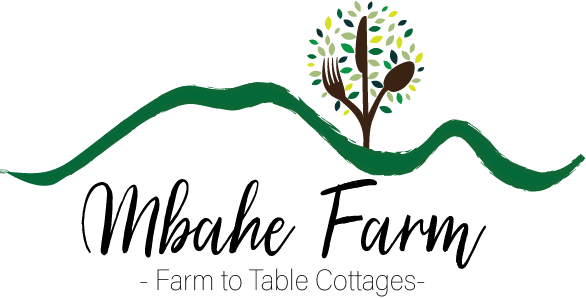
+255 787 740282
info@mbahefarm.com
P.O Box 6491
Kilimanjaro
Mbahe Village
Tanzania